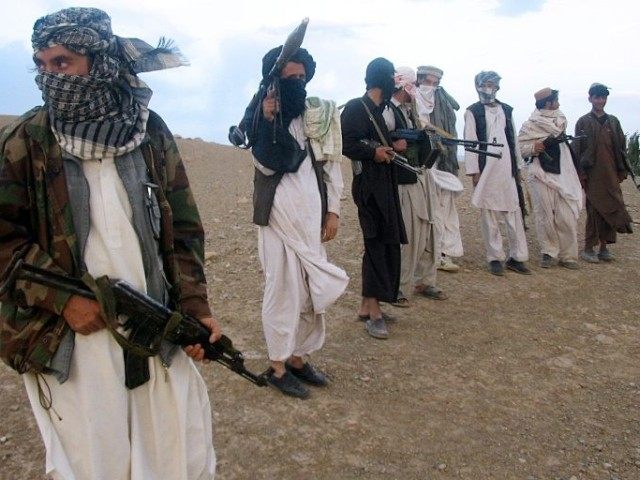The Kabul-based ministry of interior (MoI) has refuted claims by the police chief of Afghanistan’s Uruzgan province that Russian military officers are training Afghan Taliban jihadists “in tactical maneuvers and planting of mines,” reports TOLO News.
“They [Russian officers] met the Taliban to train them in tactical maneuvers, and planting of mines, this is the information which has been traced by our intelligence organs in Uruzgan,” Ghulam Farooq Sangari told the Afghan news outlet.
Afghan government officials also denied allegations by lawmakers in the country that Russia has sent weapons to the terrorist group.
“Just a day before I met the minister of interior, hundreds of BM40 missiles entered the country through Nimroz border and the missiles have been delivered to the Taliban in Helmand, Kandahar, Uruzgan and some western provinces. It is believed that these weapons have been provided by the Russians through Iran,” said Khalid Pashton, a member of parliament (MP) in Afghanistan, according to TOLO.
Nimroz borders both Iran and Pakistan.
“It’s natural, the majority of weapons in Iran are made in Russia; they have signed contracts with the Russians in this respect; the Iranians have a lot of Russian-made weapons; if sometimes these weapons are delivered to the Taliban, then we can confirm that these weapons are provided to the Taliban by the Russians,” added MP Abdul Jabbar Qahraman.
“Our military operations continue across Afghanistan. But so far we have no evidence to show that Russia provided ammunition to the Taliban,” claimed Mohammad Radmanish, deputy spokesman for the Ministry of Defense (MoD).
American Gen. John Nicholson, the top commander of U.S. and NATO forces in Afghanistan, has accused Russia, Iran, and Pakistan of lending support to the Afghan terror group.
“Russia has overtly lent legitimacy to the Taliban,” the general told reporters in December, adding, “This public legitimacy that Russia lends to the Taliban is not based on fact, but it is used as a way to essentially undermine the Afghan government and the NATO effort and bolster the belligerents.”
“I’ve seen the influence of Russia of late — increased influence in terms of association and perhaps even supply to the Taliban,” American Gen. Curtis Scaparrotti, the top commander of U.S. and NATO forces in Europe, added in March.
Last December, Russian Foreign Ministry spokeswoman Maria Zakharova publicly acknowledged the collaboration between Russia and the Afghan terror group, saying it involves intelligence-sharing and cooperation to fight their mutual enemy, the Islamic State (ISIS/ISIL).
Nevertheless, the Kremlin has since repeatedly denied that it is providing military support to the terrorists.
Police chief Sangari alleged that eleven Russian troops, including two generals and two female doctors, recently met with Taliban jihadists in Afghanistan’s Uruzgan province.
Uruzgan borders the southern and opium-rich jihadi strongholds of Kandahar and Helmand provinces. Both southern provinces border Pakistan. Kandahar is known as the birthplace of the Taliban, which generates an estimated 60 percent of its revenue from the illicit opium business.
The Afghan government claimed it has no evidence that the Russian military met with the Taliban in Uruzgan.
“We once again call on the Uruzgan police chief to provide us with further explanations and give us more information, but the ministry of interior has no information about the presence of Russian military in Afghanistan,” said Najib Danish, a spokesman for MoI.
In December 2016, Reuters learned from unnamed Taliban officials that the Taliban has maintained “significant contacts” with Russia since at least 2007.
“We had a common enemy,” one senior Taliban official told Reuters. “We needed support to get rid of the United States and its allies in Afghanistan and Russia wanted all foreign troops to leave Afghanistan as quickly as possible.”
Iran also opposes the U.S. military presence in Afghanistan.
Like Russia, Iran claims it is backing the Afghan Taliban in its fight against their mutual enemy ISIS.
“Iran and Russia have stepped up challenges to U.S. power in Afghanistan, American and Afghan officials say, seizing on the uncertainty of future U.S. policy to expand ties with the Taliban and weaken the country’s Western-backed government,” reports the Washington Post.

COMMENTS
Please let us know if you're having issues with commenting.